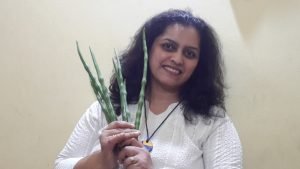In a moment, we will discuss 3 methods of composting and in the subsequent section, I will help you choose the right method for you.
Here are a few guidelines that are common, no matter which method you choose.
In the article about composting, we discussed ATM of composting, Aeration, Temperature and Moisture. Temperature is not much of a concern for a tropical country like our’s.
I will be suggesting composting techniques, where aeration will be taken care of automatically. You need to worry about A either.
Only factor we need to maintain is M, i.e. moisture.
Proximity to water source
We will need to provide water to keep moisture level in the compost. The spot you choose for compost should be near water tap.
If possible, re-use water. You can collect water used for washing rice and pulses and use it to water the compost.
If in summer months, there is water shortage, skip watering the compost. Let the rains do this work for you.
Here are a few more things you should know before starting composting.
If this is your first attempt, go for only dry leaves composting
Compost made from dry leaves and kitchen waste is of superior quality. Kitchen waste i.e. greens contain Nitrogen (N). Dry leaves contain carbon (C).
Micro organisms that are vital for composting can live and thrive when they get both, Carbon and Nitrogen.
However, kitchen waste poses some challenges. Kitchen waste attracts mice. Mice are part of our ecosystem. And they will find way to the food, come what may. And then there will be complaints from your society members that compost is attracting rodents.
Are you doing composting for the first time? Are you doing composting in society premises, i.e. the common area? Then, I would suggest you use only dry leaves.
There is nothing attractive for mice in dry leaves. they will leave your compost alone.
Once you create your first successful compost, and gain enough confidence, then you can try kitchen waste + dry leaves composting.
Most of the required moisture would be provided by the kitchen waste and resulting compost will be of better quality. But go for it only after 1st successful compost.
In the section, bonus material, I have provided a few more pointers for wet waste in addition to dry leaves.

